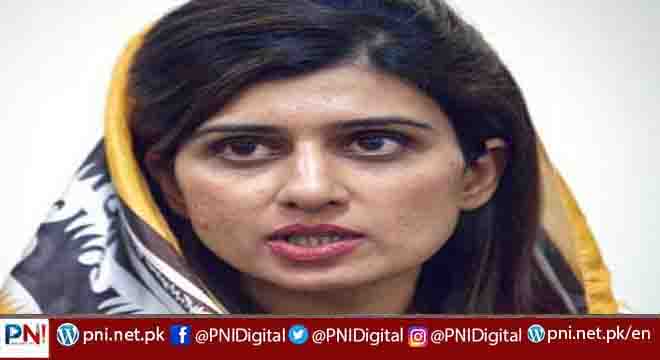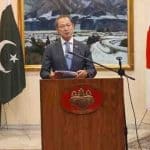ISLAMABAD, Apr 13 (APP): Minister of State for Foreign Affairs Hina Rabbani Khar Thursday said peaceful and stable Afghanistan was in everyone’s interest as continued conflict and instability threatened not only Afghanistan and its people but carried adverse implications for the region and beyond.
Speaking at the 4th Ministerial meeting of the Neighbours of Afghanistan Format in Samarkand, Uzbekistan, she said, “We are meeting at a critical juncture. Afghanistan currently faces multiple and mutually reinforcing challenges: the humanitarian situation in the country remains grim, with a staggering 28 million people – over 2/3rd of the population, requiring urgent humanitarian assistance to survive.”
“The menace of terrorism continues to blight the lives of Afghan people on a daily basis. The threat posed by terrorist organizations to the neighbouring states and the region, has accentuated,” she added.
She said, “the Afghan economy continues to operate under the shadow of sanctions and billions of dollars of frozen assets.”
“Tens of thousands of Afghans have sought refuge in the neighbouring countries, in particular, Pakistan. There are indications that these numbers may swell in the coming days, creating fresh challenges for the neighbouring countries
and the host communities.”
“At a time when the Afghan people need the international community the most, we see the world moving away, closing doors on the common Afghan citizens,” she noted.
The minister said the decision of interim Afghan government to suspend education for women and girls and to prevent them from working for national and international NGOs, was regrettable as not only it deprived the enterprising Afghan women and girls their rightful opportunities to progress and advance, and to secure gainful employment, but also restrained the helping hand of many friends and well-wishers of Afghanistan.
She said Pakistan had voiced its disappointment with this decision. “We believe the right to education is not a favour to women, to be dispensed at will; it is a fundamental human right, as enshrined in our noble religion, and the teaching of the Holy Prophet (PBUH).”
Talking about terrorism, she said, “We also believe that more needs to be done to eradicate the foothold of terrorist organizations from Afghanistan, without distinction and in a concerted and uniform manner. Greater cooperation and coordination with the interim Afghan Government remains critical. We look forward to working closely with the neighbouring states and the international community to this end.
Hina said, “Pakistan believes that our collective efforts should be guided by unity of purpose and a synergy of effort within the region remains imperative. We should not only continue to hold regular consultations but also evolve common strategies and shared perspectives on Afghanistan.”
“Pakistan believes that the three Working Groups, on the political and diplomatic, economic and humanitarian and security and stability dimensions, established during our last meeting, provide a useful framework to follow-up on the decisions taken during our meetings, and should be fully operationalized.”
The minister emphasised that connectivity had remained a pipe-dream for far too long. “This must change – we must turn this ‘constraint’ into a conduit for regional peace and prosperity. Connectivity projects such as CASA-1000, Trans-Afghan Railways, TAPI and others, are not merely economic undertakings, they are also strategic investments in our shared future – an effective counterpoise to the threat of terrorism, drug trafficking and other challenges confronting Afghanistan. As a first step, a dedicated ‘Connectivity Fund’ to provide priority financing for these projects should be considered.”
She said Pakistan firmly believed that humanitarian support should remain delinked from any political considerations. The common Afghan people should not be made victims of political choices made by others.
“Exploring realistic pathways towards unfreezing Afghanistan’s financial assets would be a key first step. A road map for the rehabilitation and reconstruction of Afghanistan is equally important. Since peace and stability is a strategic imperative for the region, we, as key stakeholders in a stable Afghanistan, should remain at the forefront of this effort.”
“Greater coordination between regional and international efforts on Afghanistan remain equally important. As representative voice of over 1.8 billion Muslims across the world, the OIC enjoys a unique stature and standing within Afghanistan unmatched by other international organizations. The OIC has taken a number of initiatives including establishment of the Humanitarian Trust Fund and the Afghan Food Security programme. Building synergies with the OIC, including the OIC Trust Fund, would amplify our collective efforts to help and assist the Afghan people,” the minister concluded.
Follow the PNI Facebook page for the latest news and updates.









